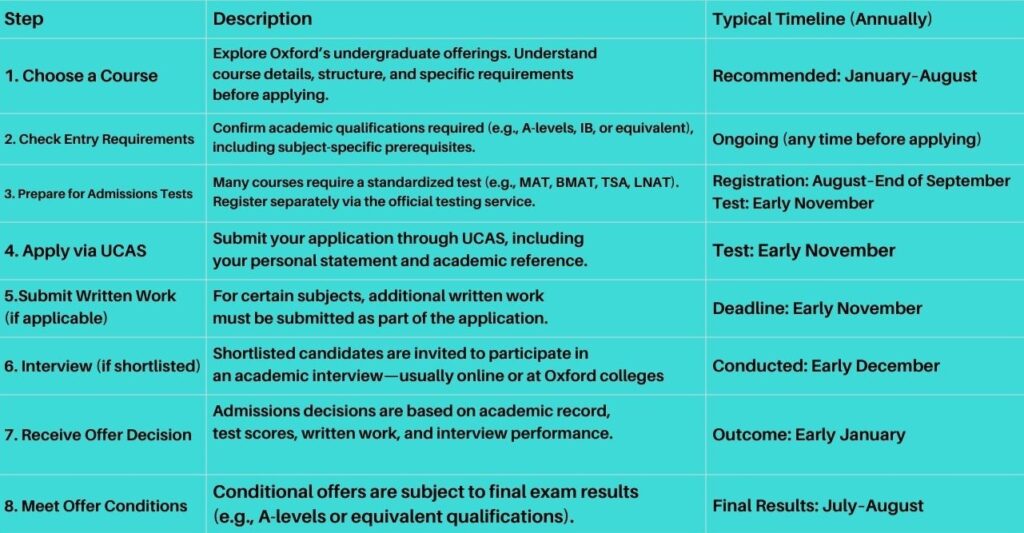1.Introduction
The United Kingdom (UK) stands as a road-book of academic excellence with a rich historical tapestry, vibrant cultural dynamics and an insatiable thirsty for innovation. Drawing ambitious students from across the globe to it’s esteemed institutions, UK stands as a beacon of academic excellence. The UK is home to some of the world’s oldest and most prestigious universities, including University of Oxford, University of Cambridge, Imperial College London, London School of Economics and Political Science (LSE),University College London (UCL) and so on.
The UK attractive thousands of students from across the world every year. Student choose the UK not only for it’s educational prowess but also for the experience of studying in multicultural, historically rich, also academically stimulating environment.
2.Why Choose United Kingdom (UK) for higher study?
There’s are lot of opportunities available for students who’s looking to study abroad. Several countries are ready to welcome students with open arms and attracting them with their high quality education, culture and divers opportunities from every sector. Every year, probably 180 countries students choose UK for their education and career goals. There are several reasons why students need to choose UK’s universities, including
2.1.World-Renowed Universities: United Kingdom(UK) is the home to a remarkable array of world-renowned universities which are constantly ranked as worlds best universities also rank among the top globally.
2.2.Academic excellence: The UK is home to some of the world’s oldest universities and colleges that have their roots in the 12th and 13th centuries.A deeply ingrained tradition that has fostered some of the most influential thinkers and groundbreaking discoveries in history of UK’s higher education system. When it comes to academics the legacy of these educational institutes has set a standard for the world to follow.
2.3. Quality of education: UK universities education quality is a hallmark that attract students globally. It has established robust quality assurance mechanisms for maintaining the quality of higher education. In this part Quality Assurance Agency for Higher Education (QAA) play a significant role ,they reviewing universities education quality on regular bases and assess the educational standards.
2.4.Shorter Duration of Courses: When students planning for study in abroad several students may be a little hegitate for courses because of this taking more time to complete. Undergraduate degree often takes three years to complete and Masters topically be finished in just one year. Providing courses with short duration helps students lower living expenses and tuition fees while also enabling students to start working sooner.
2.5.Work While you Learn: As stated earlier, when planning to study abroad, emphasis is given on the financial aspect of the maneuver. Every decisionism taken keeping the budget in mind, in these circumstances when there is an opportunity provided to earn while you study, it tends to attract more students. students have opportunities to take part-time jobs. Foreign students are permitted to work up to 20 hour per week.
2.6.Cultural Diversity: When you are considered the most sorted destinations by many students, it is but obvious that you are going to attract students from all over the globe. The UK has about 14% of its population that is from abroad, this has made the UK a melting pot of vivid cultures, which provides international students UK a chance to explore multiple cultures.
Because of this diversity, there is a lively, welcoming atmosphere where students may widen their horizons and learn from one another. Interacting with others from many origins improves one’s grasp of culture and global consciousness, two qualities that are extremely useful in the linked globe of today.
2.7.Professional Opportunities: Graduating from the UK universities can make a big difference to your CV. As stated earlier, the UK is known for its educational standards and its approach towards learning, universities in the UK provide a thorough education that integrates academic knowledge with practical experience by utilizing a combination of theoretical and practical teaching techniques. With this innovative method, students get a competitive advantage and show that they can succeed in a variety of international environments.
2.8.Scholarship opportunities: For international students UK universities offer several type of scholarships, including UK government scholarships, University-Specific scholarship, post-graduate loans, studentships and so on.
3.How to choose the Right University?
Choosing a best university is not so much complicated, for that need to know about some topic of those universities. It’s all about your future, so have to choose best one for you which will significantly shape your academic, professional, personal journey. Here are some information you have to know about the University,
3.1.Academic reputation and program quality: University Ranking is mandatory for judging a university. Different Universities are best for different subjects. So you have to choose the University based on the subject. If you choose research based subjects you have to choose those universities which are best for research. Examine the course curriculum in details, with you academic interests and what you are looking for your future.
3.2.Location and Campus environment: University location is also important for choosing university. It obviously depends on your lifestyle, budget and overall experience.
3.4.University culture and community: For exploring university life, you have to think about your choosing place to study. Because a university us not just a place to study, it’s the place where you will love, grow and build your life goals. A strong student community can enhance your personal development and also can help you to combat homesickness.
3.5.Course content: The part of taking a vital decision of your university you have to know the core and optional modules, assessment methods, work placement or study abroad opportunities.
For choosing a university need more things to know as entry requirements and admissions criteria, graduate employability and career support, student support services and mostly tuition fees and scholarships. All those sites also important for choosing a university for our future career. It’s fully depends on your subject, which subject would you like to prefer for your future career.
4.Application process in UK universities
Applying for UK universities generally depends on whether applying for an undergraduate or postgraduate or masters programs. Here’s the step-by-step process:
4.1.Application for undergraduate:
They have different process in different level, as undergraduate studies primary route is through the Universities and Colleges Admissions Service (UCAS). This system allows students to apply to up to five courses or depends universities with a single application.
•Choose a course and research: First choose a subject which will align with your interests and career goals. After that do search about that subject and check requirements for each courses.
•Register on UCAS: In this step and you need to create an account on www.ucas.com.
•Fill up application: For fill up the application, need to provide all details, educational qualifications and grades, work experience (if any) and other which you will mention in application form.
•Choose career: Select five different courses at different Universities or in same university.
•Write a personal statement: In this part you have to explain why are you interested in the chosen courses, explanation about your relevant skills and experiences and your future aspirations.
•Reference: Basically, reference means you need a recommendation ( usually a teacher or advisor of your institution) who can provide a reference support in your application.
•UCAS Application Fee: This fee will increase depends on your chosen subject. As if you choose five the fee is £28.50(can be more or less).
•Submit the application: After finishing all work you need to submit the application by the relevant deadline.
•Receive offers: Universities and Colleges Admissions Service (UCAS) will inform you about any offers from the Universities. Those offers can be condition (need to meet specific academic requirements) and another is unconditional (you will inform you that you have already met all the requirements and your place is confirmed) and also they will inform you if your application hasn’t accepted (Unsuccessful) .
Once you get the offers, you can confirm your place in your dreamy university.
4.2.Application for Postgraduate (Master’s and PhD):
Through their official websites student can apply for masters and PhD programs, directly to individual universities.
•Choose course and research: Choose Masters and PhD programs and check their all requirements, such as academic qualifications, language proficiency, specific prerequisites and documents.
•Application Procedures and Deadline: Usually students can take direct admission via the University’s website. Application deadline is very important in this process. So before apply or confine the process you need to check these carefully.
•Require documents: For apply in university, firstly collect all documents, including application form, academic transcripts, degree certificates, personal statement, letters recommendation, curriculum vitae(CV), research proposal, English language proficiency test score( IELTS,TOEFL) and passport copy.
After all these collection you will looking for submission, application fee(if applicable), interview (if required), receive offer and accept offer.
5.Admission Seasons
UK universities admission session depends on those universities which you choose for your programs. Most common and widely popular universities popular admission sessions are September/October and June/ July, some are offer May/June via its limited to certain programs.
September/October session: It’s the time of main intake (Autumn/Fall intake ). This time most courses are available. UCAS opens in Early September of the year. The course usually start from late September to early October. This intake is best for undergraduate and postgraduate students. They can get more facilities like academic disciplines, scholarships, campus accommodating availability, more course options, full access to scholarships, more course options, full access to scholarships, maximum student support services and also ideal for integration into the academic calendar.
January/February session: It’s the time of second most popular intake (Spring Intake). This time fewer courses are available. Application period start between June and October. This intakes course will start from mid-January to early February. This time is best because of students who missed the September deadline, those needing more time for preparation (IELTS, finances and so on.) select Postgraduate courses, students can get extra preparation time, smaller class sizes and more individualized attention, shorter waiting time between application and start date . But in this session, only few courses are available, some competitive programs not offered and only get few scholarships and funding options.
May/June session: It’s the time of main intake (Autumn/Fall intake). This time most courses are available. UCAS opens in Early September of the year. The course usually start from late September to early October. This intake is best for undergraduate and postgraduate students. They can get more facilities like academic disciplines, scholarships, campus accommodating availability, more course options, full access to scholarships, more course options, full access to scholarships, maximum student support services and also ideal for integration into the academic calendar.
6.Top Universities in United Kingdom (UK)
University of Oxford
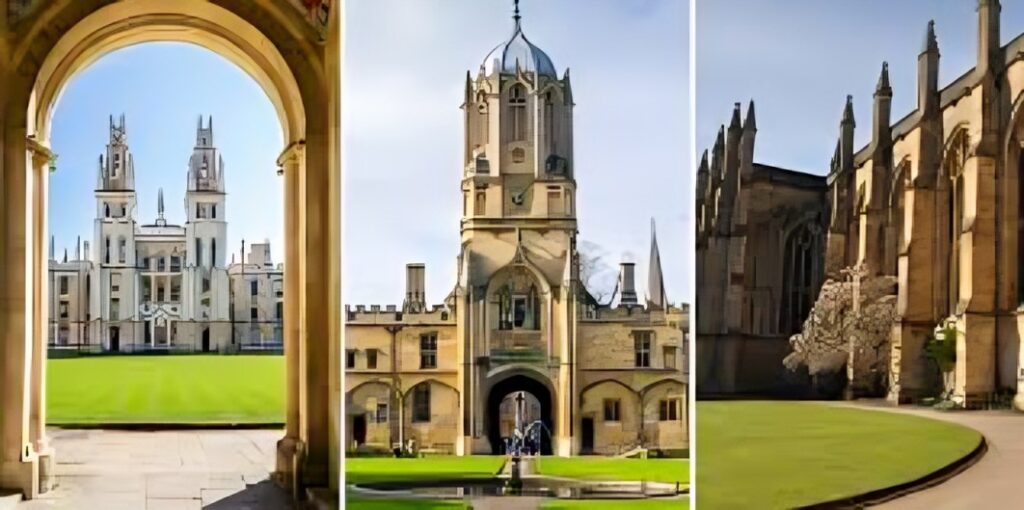
The University of Oxford is a collegiate research university in Oxford, England The University of Oxford, since 1096(teaching began).Oxford founded in 8th century, granted city status in 1542. It is located at the rivers Thames(Isis) and Cherwell. This university is the oldest university in the English-speaking world and the second-oldest surviving university globally. Over 900 years, Oxford University continue their teaching with modern innovation, attracting students and scholars. This university evolved significantly in 1167 when English students returned from the University of Paris.
This university have some historic milestones as first university museum ( Ashmolean Museum),one of the oldest university presses (Oxford University Press) and also have the largest academic library system (Bodleian Libraries),early advocate for academic freedom and secular education. Today’s Oxford host more than 25,000 students. In this number approximately 45% students are international, making it not only a historic university but also a truly global one. In the fiscal year ending 31 July 2024, the university had a total consolidated income of £3.05 billion, of which £778.9 million was from research grants and contracts.
College system of University of Oxford
Oxford’s distinguishable system is its collegiate system. The university is a “City University ” in that it doesn’t have a main campus, instead, colleges, departments, accommodation, and other facilities are scattered throughout the city center. The Sheldonian Theatre used for music concerts, lectures, and university ceremonies, and the Examination Schools, where examinations and some lectures take place.
Oxford have 39 colleges and 6 permanent private halls. Under the umbrella of the University, each college is an independent institution. Students belong to both college and department/faculty. They provide accommodation, meals, small-group tutorial(typically 1:1 or 2:1) and also social life and clubs.
There are thirty-nine colleges of the University of Oxford and four permanent private halls (PPHs), each controlling its membership and with its own internal structure and activities. Not all colleges offer all courses, but they generally cover a broad range of subjects.
Programs and courses
University of Oxford offers over 350 undergraduate and Postgraduate programs.
Programs of Undergraduate
Philosophy, Politics and Economics (PPE)
•Law (Jurisprudence)
•Medicine (BM BCh)
•History
•Mathematics
•Engineering Science
•English Language and Literature
•Computer Science
Postgraduate programs
•DPhil (PhD) in multiple subjects
•MSc, MPhil, MBA, BCL (Bachelor of Civil Law), and MSt programs
•Oxford Saïd Business School offers world-class MBA and EMBA programs
Best subjects to study in University of Oxford
Humanities and Social Sciences:
•Philosophy
•History
•English Literature
•Economics
•Politics and International Relations
Sciences and Medicine:
•Biomedical Sciences
•Medicine
•Chemistry
•Physics
•Engineering
Law:
•One of the most prestigious law faculties globally
•Offers BCL, MJur, and DPhil programs
•Strong emphasis on jurisprudence and comparative law
Mathematics and Computer Science:
•Strong research and teaching in theoretical and applied mathematics
•Pioneering work in machine learning, AI, and quantum computing
Business and Management:
•Saïd Business School offers globally recognized MBA, MSc Finance, and executive programs.
Admission Process:
Undergraduate Admission Process:
Postgraduate Admission Process:
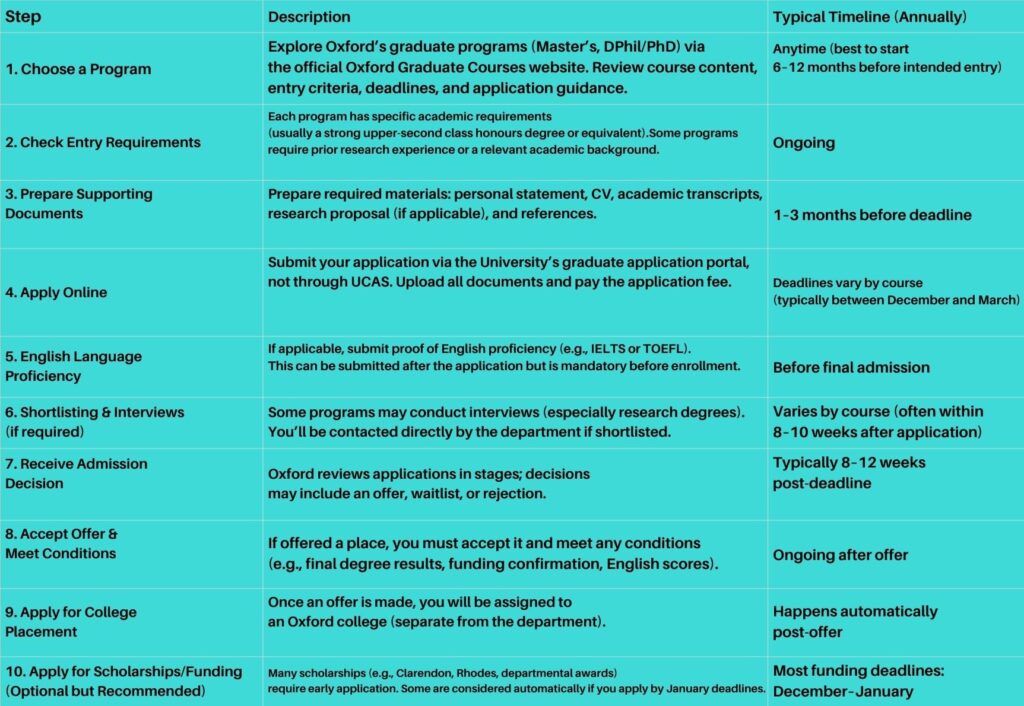
Scholarships System of University of Oxford
Undergraduate Scholarships:

Postgraduate Scholarships (Master’s & DPhil):
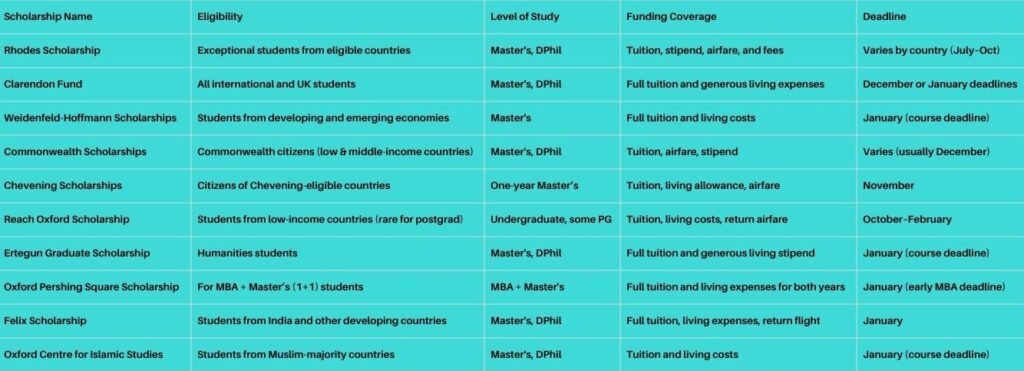
Program-or Department-Specific Scholarships:

University of Cambridge
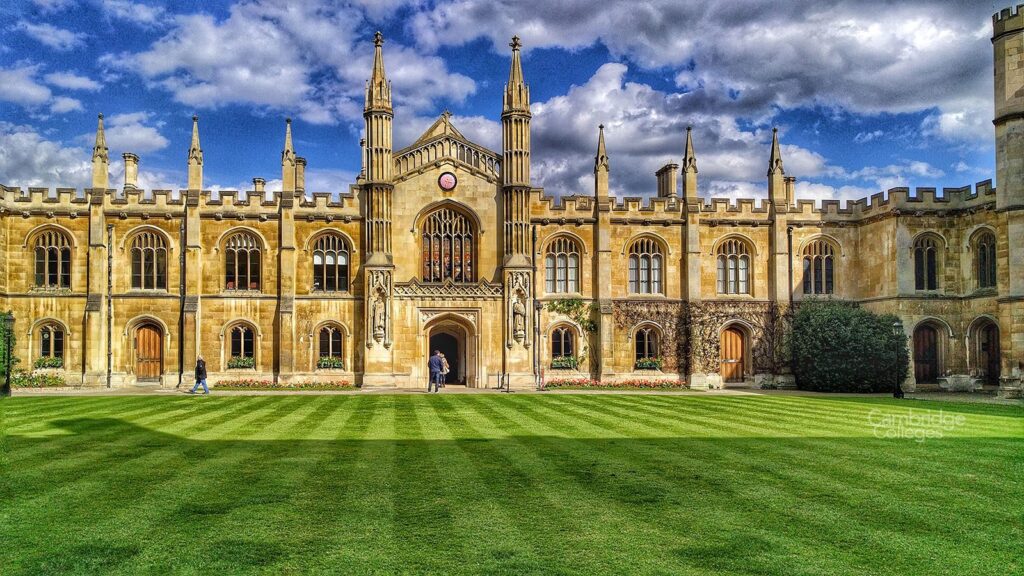
The University of Cambridge is a public collegiate research university, is one of the oldest and most prestigious academic institution in the world since 1209. It is the third-oldest surviving university in the world which is located in Cambridge, England. It has a long-standing tradition of excellence in teaching and research across discipline. This university is renowned globally for it’s academic rigor, research output and influential alumni. It’s motto is “Hinc lucem et pocula sacra (From this place, we gain enlightenment and precious knowledge)”.
University of Cambridge is best for research, leading in science, engineering, medicine, social science and humanities. Around 24,000 students come over 150 countries.
Read more: India Bans 4 Popular Bangladeshi TV Channels on YouTube Over Security Concerns
College system of University of Cambridge
The University of Cambridge has a unique collegiate system than other universities. Similar to Oxford Cambridge comprising 31 autonomous Colleges and every student belong to both, which provides academic support, housing, dining and community.
Each college of Cambridge has its own admission process, tutors and cultural identity. Students receive supervisions (1:1 or 1:2 tutorials) at their college. This colleges include Trinity, King’s, St John’s, Pembroke, Corpus Christi, and more.
Programs and courses
Undergraduate Courses (Triposes):
In the University of Cambridge use this term “Tripos” to describe undergraduate programs. Usually undergraduate degrees 3 years long ( 4 year for some science and languages). Here are the programs,
•Natural Sciences (Biology, Chemistry, Physics)
•Engineering
•Mathematics (Pure and Applied)
•Computer Science
•Law
•Economics
•Medicine
•English Literature
•Psychological and Behavioral Sciences
•History and Politics
•Philosophy
•Architecture
Postgraduate Programs:
Usually university of Cambridge offers over 300 graduate programs. They also offer some notable graduate programs. Including,
•Master’s (MPhil, MSt, MBA, LLM)
•Doctoral Programs (PhD/DPhil)
•Postgraduate Diplomas and Certificates
Notable programs,
•Judge Business School (MBA)
•Department of Engineering
•Faculty of Law
•School of Clinical Medicine
•Institute of Astronomy
Best subjects to study in University of Cambridge
•Mathematics
•Engineering
•Natural Sciences
•Medicine
•Law
•Computer Science
•Economics
•English Literature
•History
•Architecture
•Philosophy
•Politics and International Studies (POLIS)
•Classics (History and literature)
•Education (Research on Educational policy, psychology and teaching training)
•Psychology and Behavioral Science
Admission Process
Undergraduate programs:
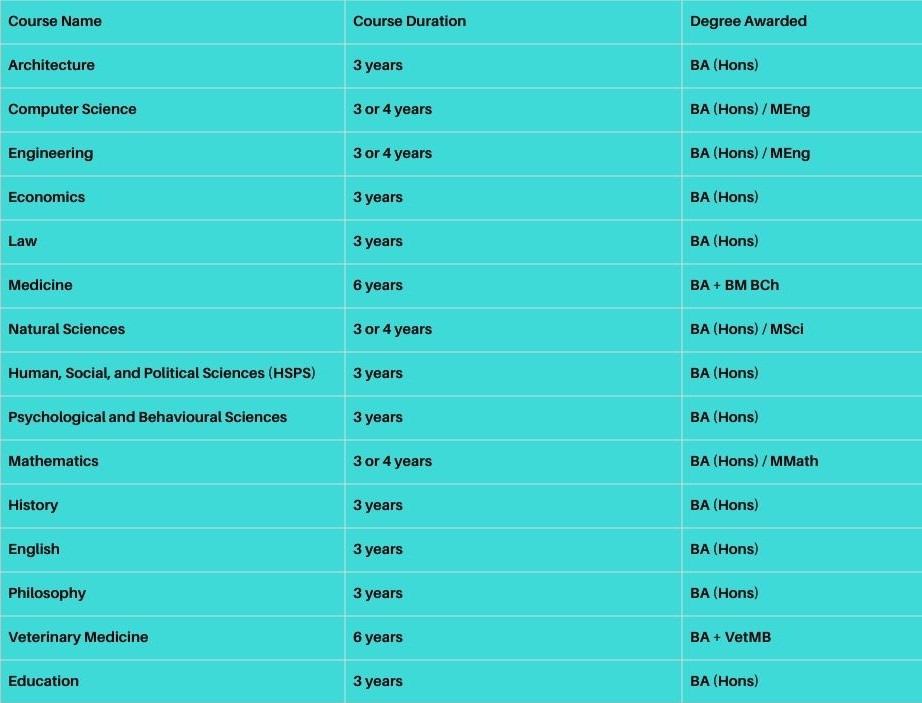
Postgraduate Programs:
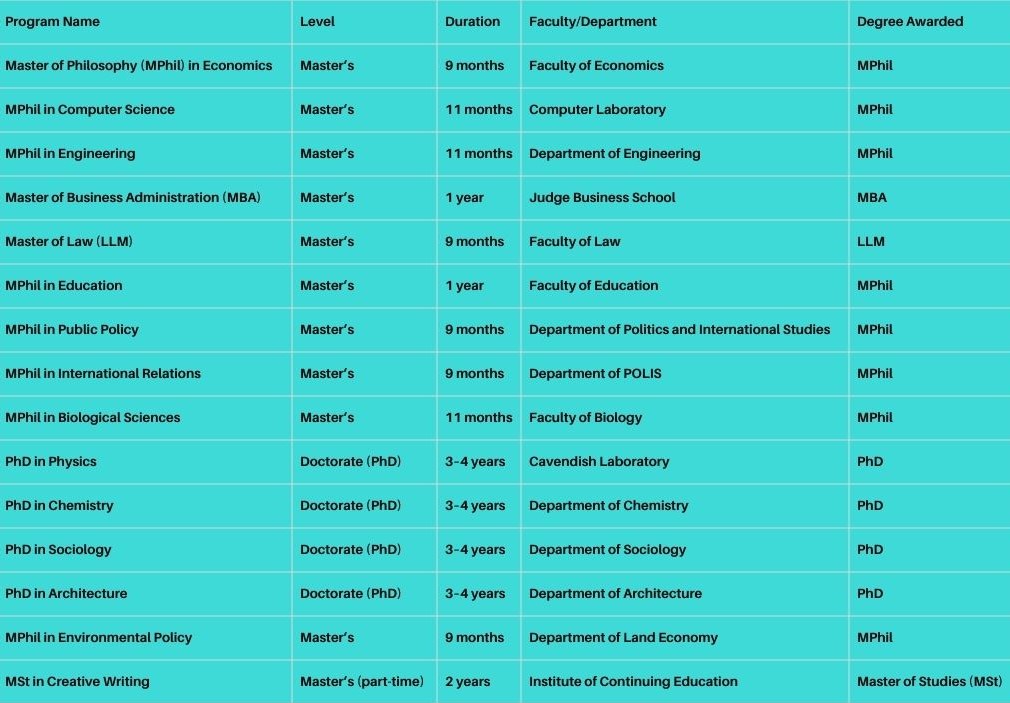
Scholarships System of University of Cambridge
Undergraduate Scholarships at the University of Cambridge:

Postgraduate Scholarships at the University of Cambridge:
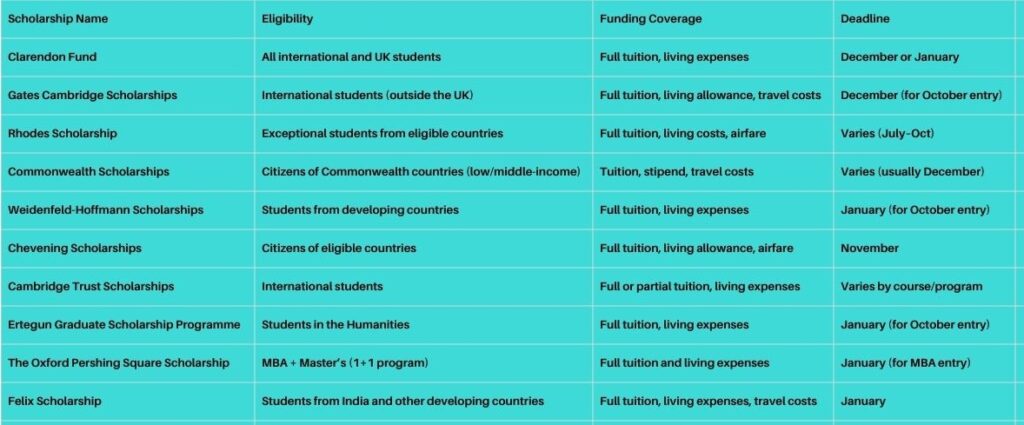
Imperial College London
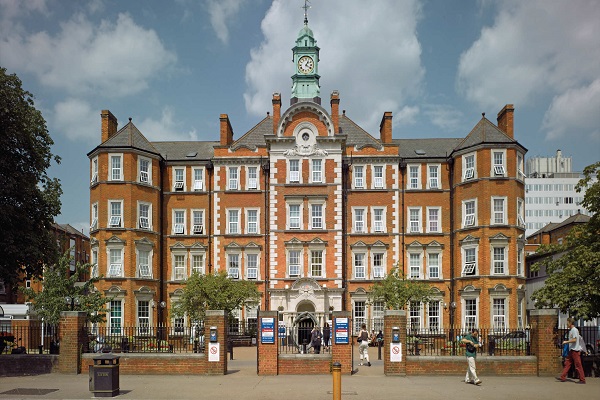
The Imperial College London (Imperial) is a public research university, a world-leading science, engineering, medicine and business institution (STEMB) which is located in the heart of the London (South Kensington, London, UK),since 1907. This university it known for cutting-edge research, high employability and also global partnership. This university is best for research.
Imperial College London, unlike Oxford and Cambridge because it doesn’t operate a traditional collegiate system with the self-governing colleges. Imperial consistently ranked among the top universities globally and also renowned for research.
College system of Imperial College London
The South Kensington campus is the college’s main campus, where most teaching and research takes place. Imperial doesn’t operate a traditional collegiate system. It has centralized campus structure with specialized departments and faculties, residences (halls) rather then colleges, for student accommodation. Imperial has a new second major campus in White City providing a platform for innovation and entrepreneurship.
Silwood Park is a postgraduate campus of Imperial in the village of Sunninghill near Ascot in Berkshire. This university mainly focus on some specific faculties including, faculty of engineering, faculty of natural science, faculty of medicine and imperial college business school.
Programs and courses
Imperial College London offers undergraduates, postgraduates and research programs. Here are the programs,
•Engineering (Civil, Mechanical, Electrical, Chemical Engineering, Aeronautics, Design Engineering)
•Natural Sciences (Physics, Chemistry, Mathematics, Life Sciences, Earth Science)
•Medicine (Medicine (MBBS), Biomedical Science, Global Health, Neuroscience)
•Business School (MBA, Finance, Economics, Innovation & Entrepreneurship, Analytics)
•Computing (Department) (Artificial Intelligence, Data Science, Software Engineering)
Admission Process
Undergraduate Programs:
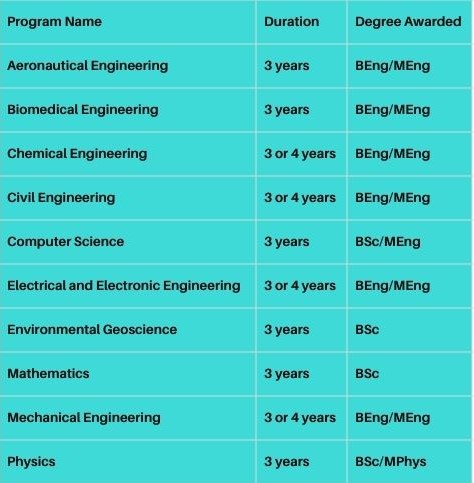
Postgraduate Programs:

Scholarships of Imperial College London
Undergraduate
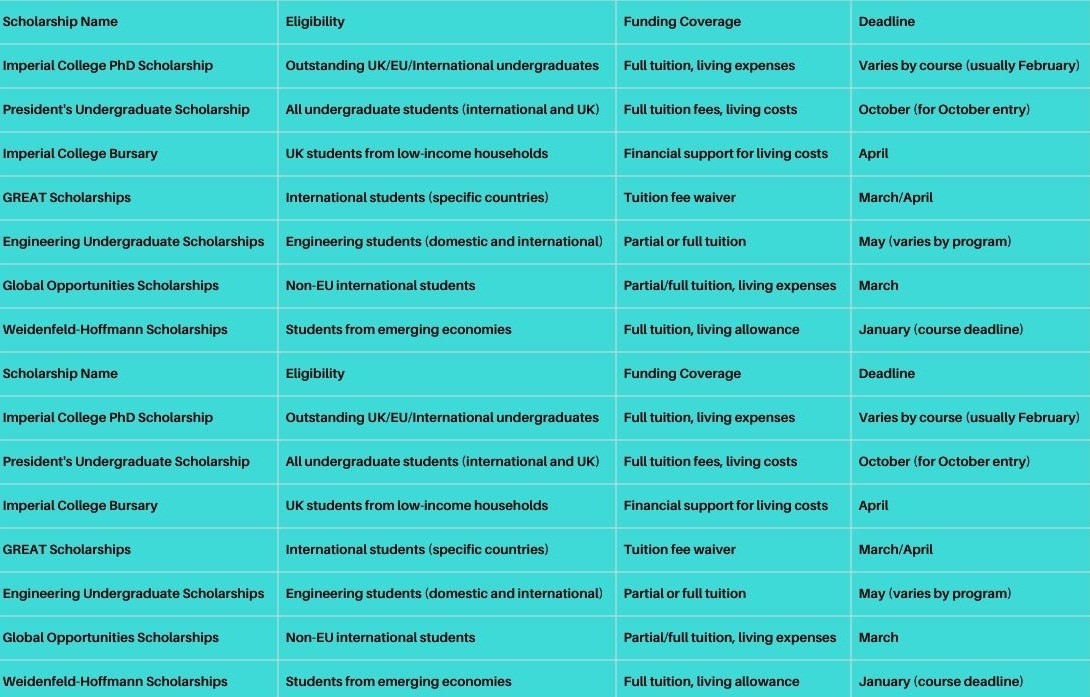
Postgraduate
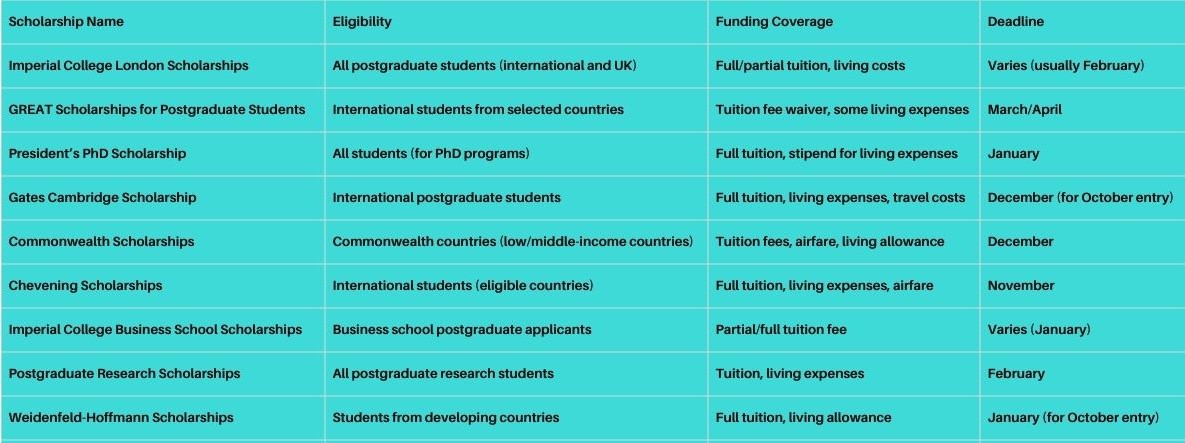
London School of Economics and Political Science (LSE)
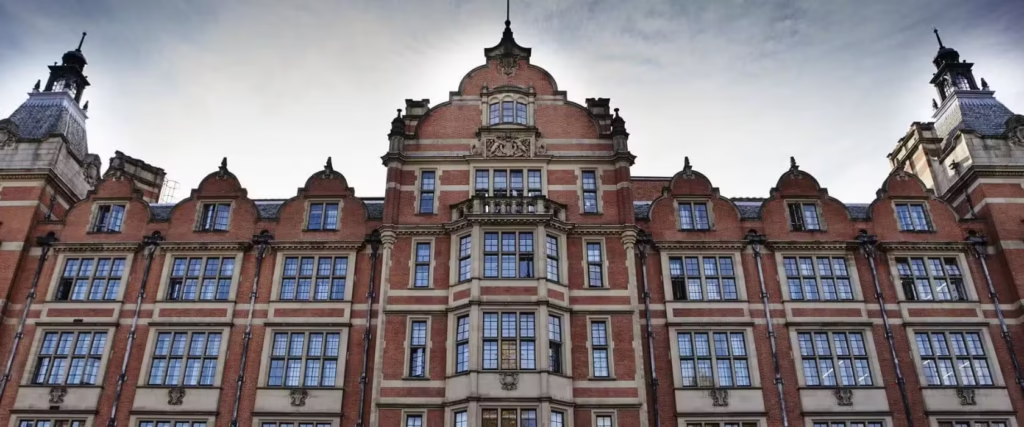
The London School of Economics and Political Science (LSE),is a public research university and one of the world’s leading social science university, which is located in the central London, near Covent Garden and British Museum, since 1895. This university’s moto is “Rerum cognoscere causas (To understand the causes of things)”. This university is specialized on economics, politics, law, sociology and business. The London School of Economics has educated 24 heads of state or government. LES, the second highest of any university in the United Kingdom after the University of Oxford, since 1990.
The London School of Economics and Political Science (LSE) is a part of the University of Landon. After the part of University of Landon but operates with global prestige as a largely independent institution. LSE has 12,000 students ,over 70% students come from several countries. LSE joined the University of London in 1900 and offered its first degree programs under the auspices of the university in 1901.
College system of London School of Economics and Political Science (LSE)
LES doesn’t operate a traditional collegiate system like Oxford and Cambridge. LES offer students direct admission to the University and it’s academic departments. LES has a strong international character and it renowned for it’s cutting-edge research and the influence of it’s academic on public policy and global affairs. This university providing accommodation and social opportunities, a diverse range of clubs and societies catering to several interests and also they serve as the primary academic and social hubs for students.
Read more: Canada’s Leading 8 Universities: A Comprehensive Academic Overview and Impact Analysis
Programs and courses
LES globally known for Social Sciences, Economic, Politics, Law and Business. This university offers undergraduate, Postgraduate and research programs. This university also offers interdisciplinary program as PPP( Politics, Philosophy and Economic) and international political economy. Here are the programs,
•Economics (BSc Economics, MSc Economics, MRes/PhD in Economics)
•Government & Politics (BSc Politics and International Relations, MSc Political Science, MSc International Relations)
•Law (LLB Bachelor of Laws, LLM Master of Laws)
•Business & Management (MSc Management, MSc Finance, Executive Global MBA)
•International Development (MSc Development Studies, MSc International Development and Humanitarian Emergencies)
•Sociology (BSc Sociology, MSc Sociology, PhD in Sociology)
•Social Policy (BSc Social Policy, MSc Public Policy and Administration)
•Statistics & Data Science(MSc Data Science, BSc Actuarial Science)
•Accounting & Finance(MSc Accounting and Finance, BSc Accounting and Finance)
Admission Process
Undergraduate Admission:
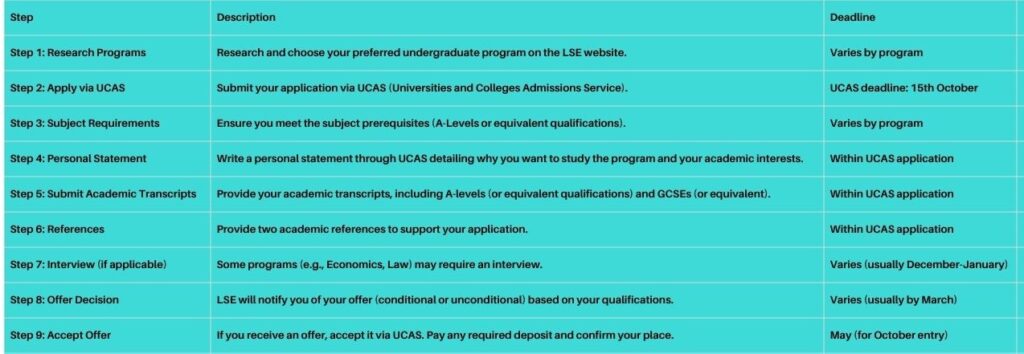
Postgraduate Admission:

Scholarships of London School of Economics and Political Science (LSE)
Scholarship for Undergraduate Students:
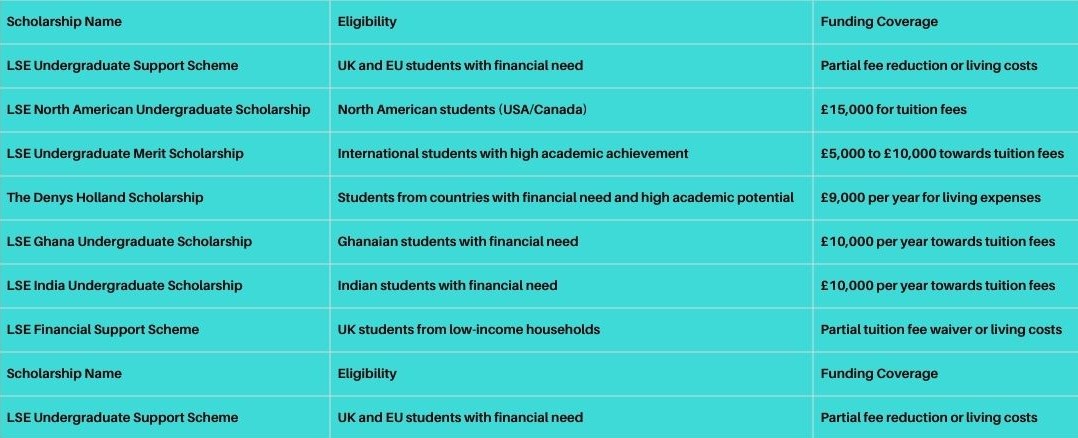
Scholarship for Postgraduate Students:

University of Edinburgh
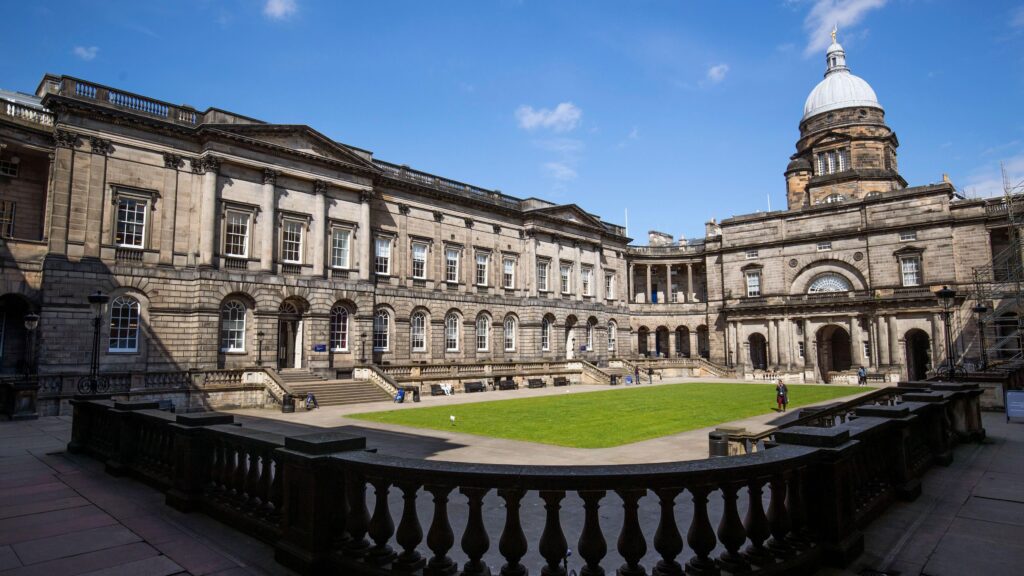
The University of Edinburgh is a public research university, one of the oldest and most prestigious university in the world which is located in Edinburg, Scotland, UK ,since 1582. This university is the members of the Russell Group and ranks as a top University for research, academic reputation and graduate employability.
Around the city of Edinburg, this university has five main campuses and highly international institution with a strong background.
College system of University of Edinburgh
University of Edinburgh also doesn’t operate a traditional collegiate system like Oxford and Cambridge. This institution structured into three colleges. Those are College of Arts, Humanities and Social Sciences (CAHSS),College of Science and Engineering, College of Medicine and Veterinary Medicine. Students belong to both schools and department rather than residential colleges.
Programs and courses
This university offers undergraduate, Postgraduate and research programs. Here are the programs,
•Computer Science & AI(BSc/MSc Artificial Intelligence, BSc Informatics)
•Medicine & Biomedical Sciences (MBChB Medicine, MSc Public Health, MSc Biomedical Sciences)
•Business & Management (MSc International Business, MBA, BSc Business Studies)
•Law(LLB, LLM in International Law, LLM in Human Rights)
•Engineering(BEng/MEng Mechanical, Electrical, Civil Engineering)
•Arts & Humanities(MA English Literature, MSc History, MSc Philosophy)
•Social Sciences (MSc International Relations, MSc Social Anthropology)
•Veterinary Medicine(BVM&S Veterinary Medicine (world-renowned program))
Admission Process of University of Edinburgh
Undergraduate Admission:
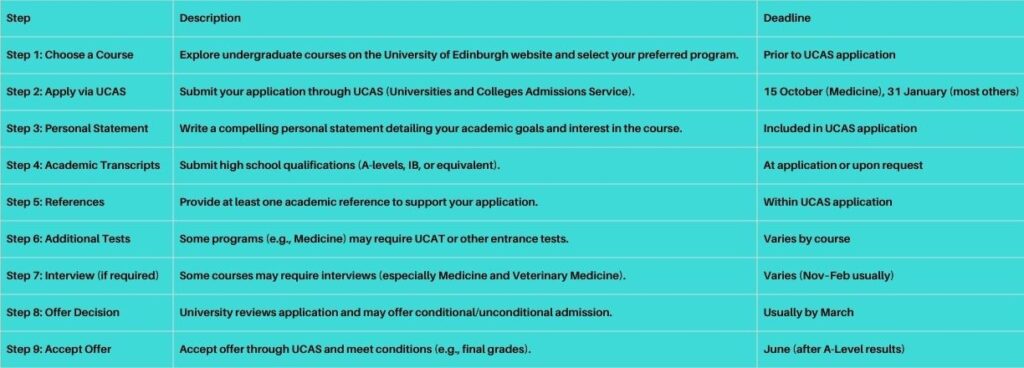
Postgraduate Admission:

Scholarships of University of Edinburgh
Scholarship for Undergraduate Students:

Scholarship for Postgraduate Students:

Conclusion
The United Kingdom (UK) stood as a beacon of academic excellence, distinguished and enduring hub for world-case higher education. Since the ancient time all institutions such as University of Oxford, University of Cambridge, University of Edinburg, Imperial College London and London School of Economics(LES) following the steps of academic traditions.
United Kingdom boasts a diverse ecosystem of top-tier universities, including the globally-minded university of Edinburgh. Each university shares a commitment to academic rigor, intellectual freedom and preparing student for leading the universe. Beyond academics, all universities offer a multicultural and inclusive atmosphere and welcoming students from the hole world.
Study in United Kingdom (UK) offers the rare privilege of living historically rich cities, as London, Oxford, Cambridge and also Edinburg. The UK countries to be an unbeatable distinguish, for students who looking for gain world-class education. It’s a step into a legacy of excellence and a launchpad for global success.
Reference
University of Oxford
University of Cambridge
Imperial College London
London School of Economics and Political Science (LSE)
University of Edinburgh
Wikipedia
Share via:



